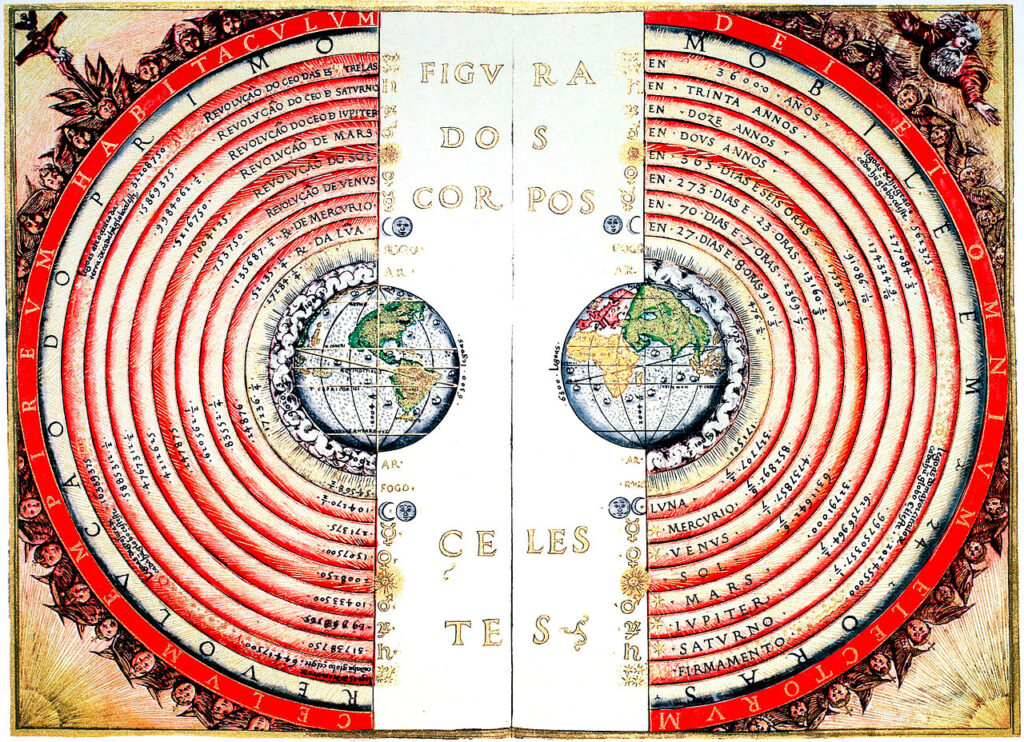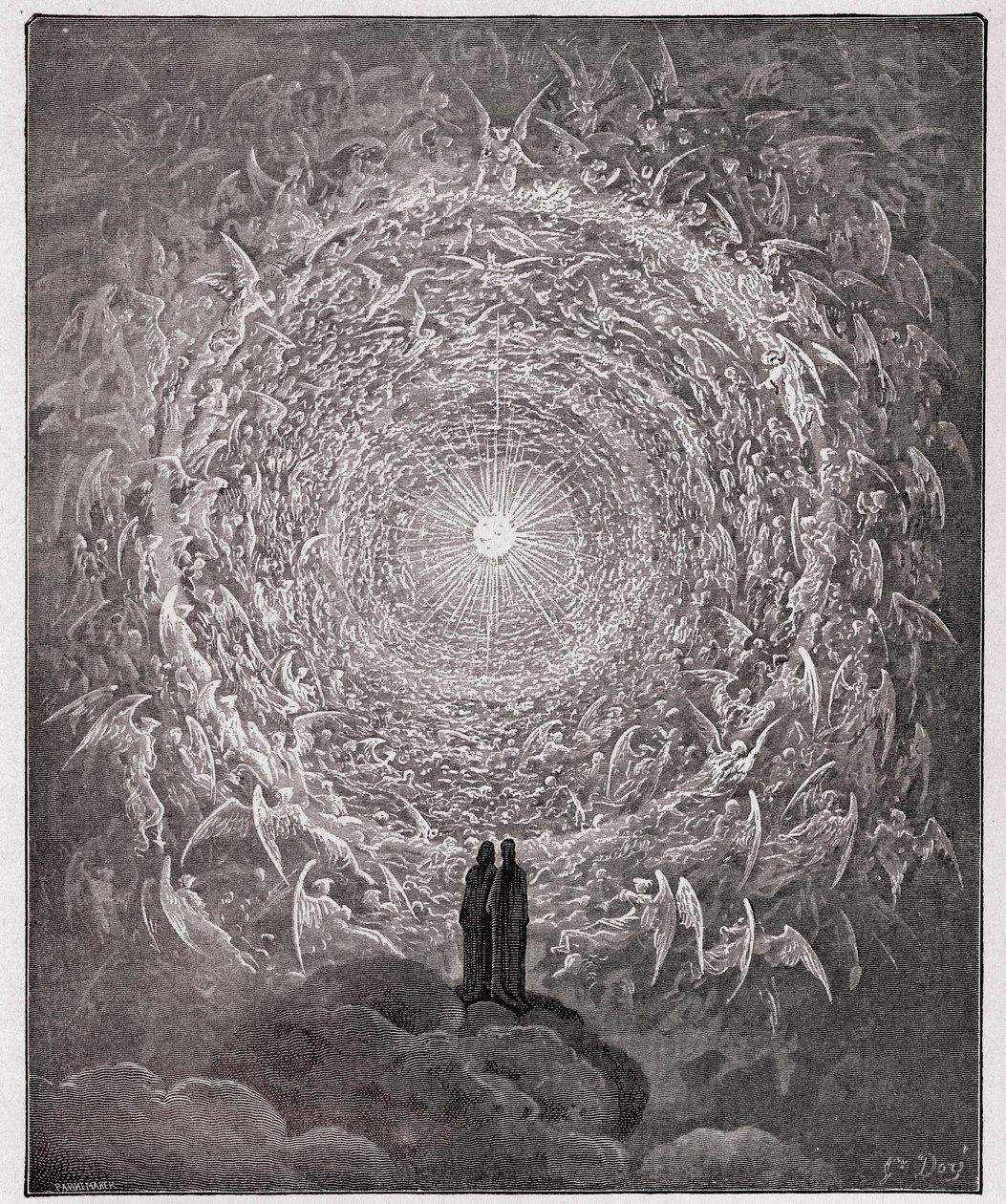The word empire carries an ancient resonance. It once signified order descending from above, a structure that replicated the harmony of creation and drew earthly power into alignment with the Divine. For Dante, the empire in its true sense was the Empyrean, the region of pure Light where blessed souls abided in union with God. The Greek root empyros means “in the fire.” That fire was not material flame but the radiant presence of Divinity, an ever-living Light. In that sense, an empire demanded kings as mirrors of celestial justice, of rulers as custodians of a higher image, of power received as service. The true empire was sacramental, a mimicry of the heavenly pattern.
Over time that meaning has faded. The medieval vision collapsed into a landscape defined by economy and geopolitics. The word empire today evokes networks of capital, spheres of influence, and the balance of military strength. Power is measured in production, in finance, in the ability to dominate markets, territories and populations. The soul of empire has been replaced by calculation. What was once conceived as a ladder of ascent to the Source has become a machinery of expansion and oppression. The sacred Fire of the Empyrean has been traded for the restless energy of consumption.
I. Empire and Empyrean
In the Middle Ages, the cosmos was imagined as a temple. The Church and the Empire were seen as its visible columns, each reflecting an invisible order of heaven. Augustine spoke of the Civitas Dei, the City of God, where the measure of all power was charity. Dante later placed this vision in the highest heaven, the Empyrean. He described a realm beyond time, where angels and saints formed a vast Rose of Light turning forever to the face of God. The emperor on earth was meant to reflect that Rose, holding authority as symbol, not as possession or domination, guiding through the image of Divine order.
The Latin imperare meant to command, but this form of command was framed by justice. The emperor was vicarius Dei, a vicar of the Divine Will. He did not hold authority in himself; he served as a conduit of the higher pattern. The very word empire carried two meanings: on earth it named the structure of temporal order; in heaven it named the realm of fire where God’s will burned in clarity. Between them stretched a fragile mirror, a bond of reflection between heaven and earth.
II. The Fall into the Market
That mirror fractured with the end of the medieval cosmos. Empire shifted from symbol to mechanism and from Sacrament to administration. The vision of kings as images of Divine fire gave way to a system of expansion, colonisation, abuse, and economic control. The British Empire stretched across seas and continents, but its strength no longer reflected celestial harmony. Gold was no longer a solar sign but a currency, a tool of accumulation. What had once been Sacramental dissolved into calculation and trade.
By the nineteenth century empire meant dominion over colonies. By the twentieth it became ideology and military machine. In the present century it has become a web of data, consumption, and distraction. The ancient fire has been inverted. Instead of the Empyrean radiant in Atziluth, the world now circulates through the shells of Qliphoth. Empire disperses into fragments without Centre, commanding not through sword alone but through appetite, distraction, violence, and the slow erosion of form.
The change reaches beyond politics. It is a change of being itself. The medieval empire stood as a ladder of ascent, a Jacob’s ladder of justice and caritas. The modern empire spreads like a web without a stairway, without a face, without a Rose. What once offered a mirror of light has turned into an engine of shadows, feeding markets rather than souls. The word has survived, but its heart has changed.
III. The Fifth Empire
In the book of Daniel, the king of Babylon dreamed of a statue shining with metals. Its head was of gold, its breast and arms of silver, its belly and thighs of bronze, its legs of iron, and its feet of iron mixed with clay. Daniel spoke of this image as the chain of kingdoms that would rise and fall, each bearing a splendour that would not endure. Gold gave way to silver, silver to bronze, bronze to iron, and iron at last was fractured by clay. At the end of the dream a stone cut without hands fell upon the statue, shattered the metals, and grew into a mountain that filled the whole earth. The vision announced the fall of empires that rest on matter and the arrival of a reign shaped by no human hand.

This stone is the Empire of Spirit. It descends from above, and its authority springs from the fire of the Empyrean. It is not measured in armies or in markets; it is not weighed in gold or in iron. The stone is eternal because it does not take form from man; it breaks the idols of history and reveals the mountain of God, immovable and vast. This mountain is the Centre of creation, where all things are drawn together.
The ancients named four elements as the fabric of the lower world. But there was also a fifth – the aether – subtle and luminous, uniting the others. The Fifth Empire belongs to that element. It is a reign of aether, where earth, water, air, and fire are reconciled through Spirit, and where the heavy empires of metal turn into dust. The stone of Daniel is the same aether made visible; the mountain of God is the Empyrean descending upon earth; the Fifth Empire is the return to the Centre, where power becomes Sacrament and Light reigns unconsumed, where empire shines again as the mirror of the Divine fire.
This vision carries the weight of prophecy, as it announces a destiny that overturns the course of the present age. The world is drifting toward fragmentation, conflict, distraction, and financial markets without centre, yet the dream speaks of a kingdom that cannot be dissolved. The Fifth Empire does not arise through conquest or economy, but awakens within the heart. It is an an inner empire where each soul becomes a stone cut without hands, raised into the mountain of God. Against the outward decline it proclaims an inward ascent, the birth of a reign where the Fire of heaven is forever enthroned within the human Spirit.
Κύριε ελέησον
